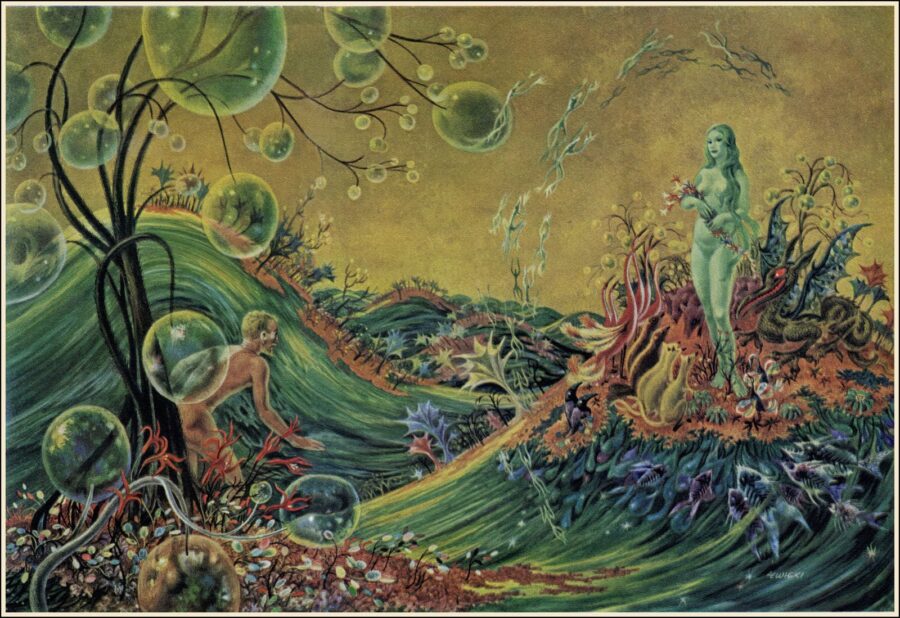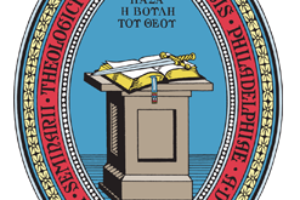“Probably not pastoral.”
I scribbled this note in the margins of Book IX of Augustine’s On the Trinity. He was in the middle of some obscure-sounding argument that the Trinity makes sense of the biblical idea that “God is love.” Because the act of love, “involves three things… a person who loves, that which is loved, and love,” we can understand that the Father loves the Son with the love who is the Holy Spirit.
These days, convoluted theological arguments irritate me. How, I wondered, might this conception of the love of God enrich the lives of his people?
The Fate of Perelandra
An hour later, I was in the car, driving to an appointment several cities away, listening to C.S. Lewis’ modern, science-fiction re-write of Milton’s Paradise Lost, Perelandra as an audiobook. The body of Professor Weston had just introduced the young planet’s “Eve” to the concept of vanity by showing her a mirror.
The glory of woman, he pushed, is that she can become “two” so that she can love herself. Conscious of her image in the mirror as both “self” and “other,” she can transcend love of other by including it within the greater love of self.
If Augustine is right, “Eve” would cut herself off both from Maleldil and the King by, rather than acknowledging them as other, acknowledging herself as other. God is love within himself because He is three persons united in perfect love.
But “Eve” is just one person.
If the Father loves the Son, truly another person, this love may be said to be the Holy Spirit. If “Eve” loves herself, not truly another person, can this love be said to be the Holy Spirit?
The Two Spirits in Ephesians
St. Paul’s letter to the Ephesians features two spirits: the one “who is now at work in the sons of disobedience,” and the “one Spirit” who unites us with Christ as one body, which is “one new man in the place of two,” urging us to “maintain the Spirit of unity.” (2.2; 2.18; 2.15; 4.3)
So there are two Spirits: He who makes one to be two, and He who makes two to be one.
The former is Lewis’ Professor Weston. He makes “Eve” two people, promising unity and love, but only among her own cut off and fragmented self. He cannot even deliver on this promise.
The latter is the Holy Spirit, who is Himself both Unity and Love. He who makes the Trinity “one” makes Jew and Gentile “one,” makes male and female “one,” and makes employer and employee “one;” he is the Spirit of racial reconciliation and the Spirit of marriage; he is the Spirit of friendship and the Spirit of the Church; he is the Spirit of Unity and the Spirit of Love; in him is no darkness at all.
Becoming “like God”
The temptation to become “like God” is the temptation to become a false Trinity all to ourselves: exchanging three persons united in love for one person fragmented in vanity.
Against such a temptation, we ought, just as Lewis’ protagonist, Elwin Ransom, to “stand against… the spiritual forces of evil in the heavenly places,” for “What God has joined together, let not [anyone] separate.” (Eph. 6.11-12; Matt. 19.6)
If you, like me, find yourself fragmented, irreversibly self-conscious, “stubbornly continuing to look inwardly upon [yourself]… and despairing in [your] own incorrigibility,” love your neighbor. You will experience the inverse of Professor Weston’s offer: you will transcend love of self by including it within the greater love of other.





1 Comment
Leave your reply.